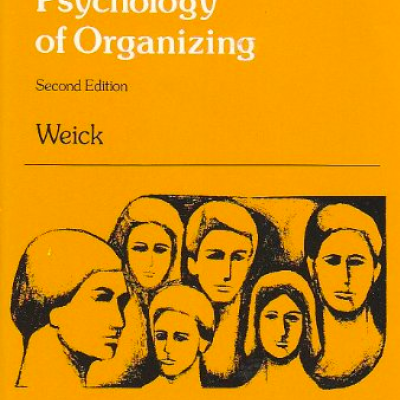Explore the faculty research, thought leadership, and groundbreaking philosophies that established Michigan Ross as one of the world’s top business schools.
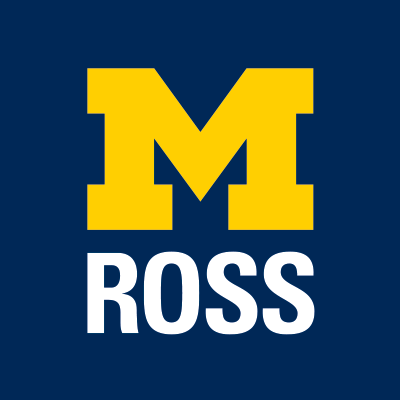
With generous support from the Mitsui Life Insurance Company, Professor E. Han Kim helped to establish the Mitsui Life Financial Research Center in 1990. The center supports research in finance in a myriad of ways and functions as an active community of faculty, students, and visiting research scholars. Since its inception, the center has rapidly expanded its influence and reputation in supporting and disseminating academic research in financial economics. In 1994, a gift from Nippon Telegraph and Telephone allowed the center to offer even greater research support to Michigan Ross faculty. The center holds annual symposiums in Ann Arbor, Michigan, as well as in Tokyo, Japan, and provides research support for faculty and doctoral students through sponsoring weekly Mitsui Finance Seminars, NTT Fellowships, the Mitsui Distinguished Visiting Scholar program, weekly finance reading groups, and data acquisitions.

In 2018, Professor Tom Lyon led a team of scholars who published a groundbreaking article about corporate political responsibility titled “CSR Needs CPR” in the California Management Review. The article argued that corporate social responsibility was an insufficient measure of corporate contribution to society and that stakeholders who care about CSR should also pay attention to corporate political responsibility. In 2019, Elizabeth Doty, adjunct faculty at Presidio Graduate School, contacted the Erb Institute at the University of Michigan and suggested turning the article into an industry roundtable dedicated to working with a select group of influential business leaders and their companies to bring to life the core precept of the article – the need to better align companies’ political spending and lobbying with their commitments to values, purpose, sustainability, and stakeholders. Thus, the Erb Corporate Political Responsibility Taskforce was founded in 2020. Lyon and Doty have developed the taskforce into a nationally recognized forum with the goal of making CPR a new norm for business. The taskforce operates under Chatham House Rule and has 20 members from some of the most recognized brands in the United States who share best practices and address CPR challenges. In 2023, the taskforce released the non-partisan Erb Principles for Corporate Political Responsibility, with five major companies as inaugural signatories. Looking ahead, the taskforce will continue building its integrated framework and engage more companies in applying the Erb Principles. Lyon continues his work in this space with his recently published volume Corporate Political Responsibility.

The paper "Value of Information in Capacitated Supply Chains" by Professor Roman Kapuscinski and his co-authors was published in Management Science in 1999. This paper contributed significantly to the understanding of how information sharing impacts the performance of supply chains. Specifically, this paper turned on its head the notion that information would be most valuable in settings where capacity is tight, when the uncertainty of demand is huge, and when the costs of unsatisfying demand are very high. The paper uses careful, rigorous analyses to reveal when information is most valuable and how the value depends on many interrelated factors. Providing an innovative analytical model, Kapuscinski and his colleagues demonstrated when and how the sharing of demand information could remarkably enhance inventory management and order fulfillment for capacity-constrained supply chains. The subsequent literature in operations management has heavily referenced this pioneering work, leading to the development of practical strategies for improving supply chain efficiency through information sharing. Further studies have explored different facets of information sharing in diverse supply chain settings and have considered more complex forms of information, extending the paper's impact in many directions within operations.

Michigan Business School Professor and Erb Institute Faculty Director,Tom Gladwin, pioneered the field of business sustainability with his concept of a "science of sustainable enterprise." It was one of the first scholarly frameworks to bring together the social, environmental, economic, and organizational aspects of competitive companies that likewise are managed to explicitly create value for society. With groundbreaking publications like "Shifting Paradigms for Sustainable Development: Implications for Management Theory and Research" and "Beyond Eco-Efficiency: Towards Socially Sustainable Business" in the 1990s, Gladwin dramatically expanded the scope of traditional management education and business leadership. Throughout his career, and his long-time partnership with the Prince of Wales's Business & the Environment Programme, Gladwin influenced hundreds of CEOs and other top corporate leaders to think deeply about, and take action on, the threat and the opportunity of sustainable business.
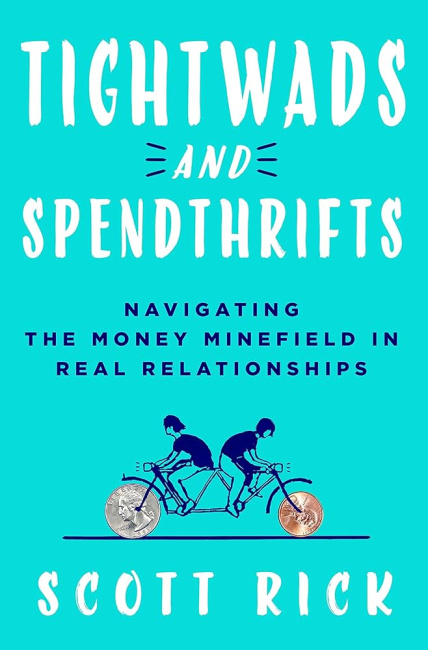
In 2008, an article by Michigan Ross Professor Scott Rick changed how academics, practitioners, and the general public thought about consumers’ spending habits. The key insight was that many people who spend very little are frustrated with their behavior. They consistently spend less than they think they should, often with negative consequences for themselves and those around them. Under-spenders (“tightwads”) and over-spenders (“spendthrifts”) are two sides of the same coin: both experience conflict and distress around their spending habits. The scale Rick and colleagues developed to measure these tendencies has become widely used by marketing and psychology researchers. The tightwad-spendthrift construct attracted even more attention when Rick and colleagues demonstrated that tightwads and spendthrifts are more likely to marry one another than they are to marry someone like themselves. This “opposites attract” pattern is initially enjoyable, but eventually, as partners begin to confront a never-ending series of joint spending and saving decisions, tightwad-spendthrift differences harm relationship quality.
This research has attracted broad attention beyond the boundaries of marketing academia. It has been the topic of webinars, podcasts, and other features produced by the National Science Foundation, the American Psychological Association, the National Academy of Sciences, and the World Economic Forum. It has received years of sustained coverage from media outlets such as NPR, the New York Times, and the Wall Street Journal. Financial organizations like the CFP Board, ING, Charles Schwab, and Equifax have informed their clients and customers about the implications of this research. Most notably, in 2024, St. Martin’s Press published a mass-market book about this research, titled Tightwads and Spendthrifts: Navigating the Money Minefield in Real Relationships.

The Personal Development Plan is a simple but impactful idea that has now been utilized by approximately 6,000 BBA alums and current students. At its core, the PDP is an Excel document that helps students plan the requirements to graduate, but its usage and value go far beyond just a requirement planning tool. In 2006, the BBA degree, which had for decades been a two-year degree program, was modified to a three-year structure with a small number of first-year preferred admits. Eight years later, in 2014, the BBA curriculum was modified from a 45 business credit requirement to 58 business credits. The changes to the curriculum meant that students had significantly more time, more flexibility, and more choices in how they progressed through the BBA degree. That flexibility increased even more as we moved to a four-year program in 2017. Advisors developed the PDP as a resource to help students make the most out of this expanded college experience.
In 2014, with the launch of the 58-credit BBA curriculum, a new core course was created, BA 200. As part of BA 200, PDP was introduced as a required component of the class and is now a co-curricular component of BA 100 and BA 102. Each year, the undergraduate advising team works with over 625 new BBA students (first-year students and transfers) so that each student develops an individualized plan for their life as a college student. Ensuring that they are planning requirements is an important part of this, but in developing their plan, students are asked to reflect on their goals for their time in college while developing their PDP. What skills and competencies do they hope to develop while they are here? Are there opportunities they want to take advantage of (study abroad, participation in programs through centers and institutes, minors or dual degrees, club leadership, etc.)? The PDP is a living document that travels with students throughout their four years and becomes a reference point for continued conversations and relationship-building with advisors until graduation. The PDP has had an impact on every single BBA student since the fall of 2014, helping to open their eyes to the rich opportunities at Michigan Ross and giving them a roadmap to their unique journey as a Ross BBA.

The Michigan Business Challenge is a prestigious business plan competition hosted by the Zell Lurie Institute for Entrepreneurial Studies. It allows U-M students to showcase their entrepreneurial ideas, receive feedback from experienced judges, and compete for over $100,000 in cash prizes to support their ventures.
The Michigan Business Challenge was established in 1984 at Michigan Ross and has since become one of the region's most impactful and well-known startup competitions. Over the years, the MBC has supported numerous successful startups, generated millions of dollars in funding, and helped launch successful entrepreneurial careers for U-M students and alumni. The MBC is open to various stages of business concepts, from early-stage ideas to established businesses.
The competition consists of three tracks that cater to specific industry sectors, including the Seigle Impact Track for social ventures, the Invention Track for ventures that have intellectual property at the core of their high-tech venture, and the Innovation Track for growing startups. These tracks provide tailored resources, networking opportunities, and funding for participants. Notable entrepreneurial ventures that have come through the MBC include Morning Brew, Xoran Technologies, AMBIQ Micro, Elevate K-12, and many more.
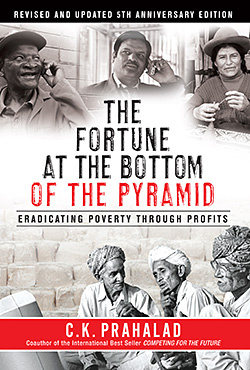
In 2002, Professor C.K. Prahalad of the Michigan Ross Business School and professor Stuart L. Hart of the University of North Carolina Kenan-Flagler Business School published the iconic article "The Fortune at the Bottom of the Pyramid" in Strategy+Business. The article suggested that "low-income markets present a prodigious opportunity for the world's wealthiest companies - to seek their fortunes and bring prosperity to the aspiring poor." Prahalad published a book with the same title five years before he passed in 2010. The article and book, with additional research and publications by Prahalad, Hart, Michigan Ross Professor Ted London, and others spawned a new business strategy for human development that has transformed into a social movement around the world known as Base of the Pyramid. The movement now includes transnationals, non-profits, social entrepreneurs, grassroots development organizations, international aid agencies, and many consulting firms dedicated to BoP strategy and implementation.

In 1998, Professor David Hirshleifer of the Michigan Business School, and two co-authors, published a paper titled "Investor Psychology and Security Market Under- and Overreactions." This paper has been widely recognized as the first explanation of the seemingly contradictory behavior in asset prices (under- and overreactions to different news) based on two well documented behavioral biases. The biases outlined in the paper are overconfidence (regarding the precision of one's private information) and biased self-attribution. The former leads to well documented evidence of long-term overreaction (price reversals), while the latter causes underreaction (momentum) in the medium term. This paper was the first widely recognized paper in finance based on departures from rational behavior and provided a compelling explanation for seemingly anomalous behavior in asset prices.
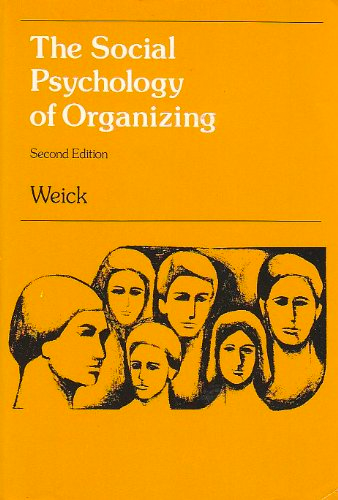
Professor Karl Weick was an iconic founder of the field of organizational behavior. Starting with his seminal book, The Social Psychology of Organizing, which was published in 1969, Weick's ideas had enormous influence, shaping organizational scholarship over the next decades and to this day. He focused on the processes of organizing rather than on organizations per se, suggesting that the insights into those processes give us important leverage to both understand and affect life in organizations. In his book, he introduced the seminal concept of "sense-making," which he defined as "the ongoing retrospective development of plausible images that rationalize what people are doing." Weick's ongoing research focused on how individuals engaged in making meaning and how that meaning-making affected important outcomes in organizations. His book has been cited more than 35,000 times, and his other work on the topic has been cited more than 13,000 times. His pioneering work has instilled a highly influential perspective on the people attempting the organizing work that goes into organizations.

Professor David Brophy brought the study of small businesses and private financial markets (now known as alternative, in contrast to publicly traded markets) to Michigan Ross and the state of Michigan before it was recognized as a legitimate area of study at top research universities. This process started in the mid-to-late seventies, and Brophy relentlessly created awareness in Michigan and educated students interested in this space. For over fifty decades, until his recent retirement, Brophy designed and taught all Michigan Ross venture capital and private equity courses.

Professor C.K. Prahalad was the major pioneer and advocate of the 'bottom of the pyramid' proposition that selling to the poor can simultaneously be profitable and help eradicate poverty. While appealing, the BOP proposition is also controversial. Professor Aneel Karnani was an early and prominent critic of the BOP proposition. In his 2007 article "The Mirage of Marketing to the Bottom of the Pyramid" and his 2011 book Fighting Poverty Together: Rethinking Strategies for Business, Governments, and Civil Society to Reduce Poverty, he argues for an alternative perspective. Rather than viewing the poor primarily as consumers, it is better to focus on the poor as producers and to emphasize buying from the poor. Both the private sector and government have a critical role to play in alleviating poverty. The best way to alleviate poverty is to raise the real income of the poor by providing them appropriate employment opportunities. The private sector is the best engine of job creation. The government should facilitate the creation and growth of private enterprises in labor-intensive sectors of the economy. The government should also fulfill its traditional, accepted functions of providing adequate access to public services, such as education, public health, drinkable water, sanitation, security, and infrastructure.
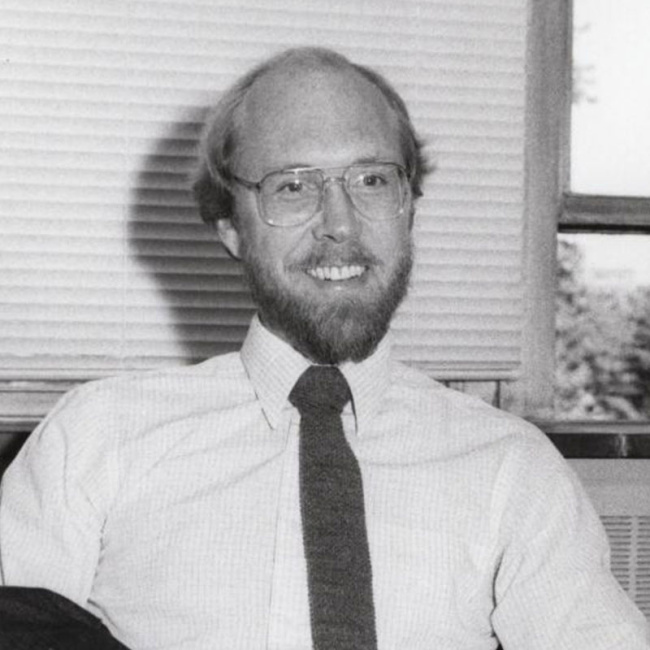
Michigan Ross is known for being one of the first places to promote and provide rigorous evidence contrary to the efficient market hypothesis. The work of Professor Victor Bernard, a faculty member from 1982-1995, played a huge role in the beginnings of literature on market inefficiency. His work in valuation and fundamental analysis was the first to provide evidence that investors could not fully process information in earnings releases. The inefficient markets argument was further supported by the work of Professor Richard Sloan, a faculty member from 1997-2007. Bernard demonstrated that market participants treat the two basic components of accounting — cash and accruals — in an irrational way when making their valuation of corporate securities. This behavior became known as the "accrual anomaly." Bernard's work twice won the Notable Contribution to the Accounting Literature Award.
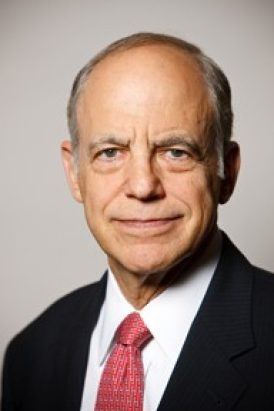
Professor Kenneth Lieberthal was a pioneer in the practice of business school professors contributing their knowledge in public service to society. Lieberthal served as the senior director for Asia for the U.S. National Security Council during the years 1998-2000.
During that same time, Lieberthal was also special assistant to President Clinton for National Security Affairs. His core academic research findings included a seminal analysis of China's bureaucratic system, which featured a nuanced and careful delineation of the fragmented nature of China's political system in the late 20th century.
Lieberthal's research was able to explain why China, during that era, had weak policy implementation at times because of the fragmentation in its bureaucratic system. He was known for introducing U.S. policymakers to a nuanced and careful understanding of the Chinese governmental system and how it functions.

Professor Gretchen Spreitzer received her PhD from Michigan Ross in 1992. Her work on empowerment, stemming from her Michigan Ross dissertation, has set the foundation for a new understanding of the employee experience. Instead of capital that organizations needed to control, empowerment brought forth the idea that employees thrive when they are given the freedom and autonomy to do their work autonomously. This pioneering work ushered in a new era of research and a fundamental shift in how organizations view their relationship with employees.

The paper "Quantity Flexibility Contracts and Supply Chain Performance" by Professor Bill Lovejoy and his colleague, Andy Tsay from Santa Clara University, was published in Manufacturing & Service Operations Management in 1999. The paper delves into the concept of quantity flexibility in supply chain contracts and its potential to deal with demand uncertainties. This influential work formally captured the practice of “funneling” variability over time, whereby more variability is tolerated in earlier planning phases and less tolerated over time as the delivery date approaches. This paper has specifically led to further studies on the optimal design and effectiveness of supply chain contracts, enhancing the field’s understanding of tactical and strategic issues in supply chain management. Researchers have built on Tsay and Lovejoy's model to study the application of QF contracts in different industrial contexts and their interactions with various supply chain configurations. The concept and modeling presented in this paper have become a prominent part of the academic discourse on supply chain coordination, influencing subsequent studies in inventory management, order variability, and supply chain profitability. Thus, the paper's impact is significant and broad, inspiring much-needed research on flexible, cooperative strategies for supply chain optimization.














